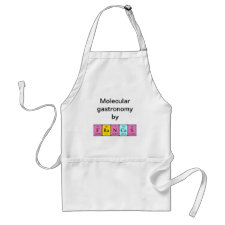
Authors: Vidyasankar S, Ru M, Arnold FH
Article Title: Molecularly imprinted ligand-exchange adsorbents for the chiral separation of underivatized amino acids.
Publication date: 1997
Journal: Journal of Chromatography A
Volume: 775
Issue: (1-2)
Page numbers: 51-63.
DOI: 10.1016/S0021-9673(97)00280-X
Abstract: Ligand-exchange adsorbents that are enantioselective for underivatized ol-amino acids have been synthesized by molecular imprinting using only achiral monomers. Bulk polymers were prepared by allowing the functional monomer, Cu(II)-N-(4- vinylbenzyl)iminodiacetic acid, to form complexes with the template amino acid in solution, followed by crosslinking with ethylene glycol dimethacrylate. To make supports suitable for chromatogaphy, the imprinted polymer was grafted to derivatized silica particles. Racemic mixtures of various underivatized a-amino acids are resolved on the imprinted adsorbents. Adsorbents prepared from amino acids with larger, aromatic side chains exhibit the highest selectivities (alpha=1.65 for the enantioresolution of D,L-phenylalanine). Cross- selectivity for similar amino acids also depends on side chain size: materials templated with L- or D-phenylalanine exhibit good enantioselectivity when challenged with racemic tyrosine (alpha similar to 1.4) and much reduced enantioselectivities towards D,L- tryptophan or aliphatic amino acids. Materials imprinted with alanine show no selectivity, The ability of a material imprinted with an amino acid enantiomer to resolve an analogous chiral amine is also demonstrated. The mechanisms underlying the observed enantioselectivity are discussed in light of the three-point interaction model for conventional chiral ligand-exchange separations. (C) 1997 Elsevier Science B.V
Template and target information: phenylalanine



Join the Society for Molecular Imprinting

New items RSS feed
Sign-up for e-mail updates:
Choose between receiving an occasional newsletter or more frequent e-mail alerts.
Click here to go to the sign-up page.
Is your name elemental or peptidic? Enter your name and find out by clicking either of the buttons below!
Other products you may like:
 MIPdatabase
MIPdatabase









